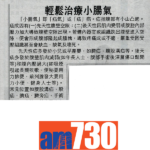
Other prepuce diseases
There are many foreskin diseases, for example, flat warts, common warts, condyloma acuminata (genital warts), sebaceous cysts, recurrent posthitis, recurrent balanitis, seborrheic keratosis, balanitis xerotica obliterans and penis skin cancer, etc..
Foreskin diseases are usually treated by medications or surgery. Some prepuce diseases are treated by partial removal of the foreskin or circumcision. There are many different ways to treat foreskin disease. Please consult your doctor for advice.
Balanitis and Posthitis
Balanitis is inflammation of the head of penis. Posthitis is inflammation of the foreskin of the penis. Posthitis and balanitis, which often occur together, are common conditions that affect an estimated 3-11% of men and can occur in men of any age. Posthitis and balanitis can be a complication of phimosis.
Symptoms
Common symptoms:
- Increased penis discharge or pus discharge
- Pain, difficulty, or skin cracking when retracting the foreskin
- Itchiness at the head of penis, increased temperature, tenderness, redness, rash, and skin blisters/vesicles
- Ulceration or thickening of the foreskin and head of penis skin
- Pain or difficulty in passing urine, urinary frequency, and frequent urination
- Impotence and sexual dysfunction
- Systemic symptoms such as fever and nausea (not common)
Diagnosis
Experienced doctors can confirm the diagnosis of balanitis or posthitis, by careful history taking and clinical examination.
Investigations
Swab tests:
- Herpes simplex virus tests
- Human papillomavirus test
- Sexually transmitted diseases
- Bacterial culture
- Fungal culture
Blood tests:
- Glucose
- Human immunodeficiency virus (HIV)
- Syphilis
- etc.
Treatment
The goals of treatment are to minimize urinary dysfunction, reduce sexual dysfunction, rule out penile cancer, treat precancerous conditions, and diagnose and treat sexually transmitted diseases. The ultimate goal is for the patient to recover as quickly as possible.
Doctors may consider treatment with antibiotics, antifungal medications, and antiviral medications. Treatment may need to be adjusted based on laboratory test results.
Patients with acute attacks of balanitis and posthitis can usually recover within 1-2 weeks with appropriate evaluation and treatment.
People with diabetes need to control their diet and may need to take diabetes medications.
Patients with recurrent balanitis or recurrent posthitis may need to consider circumcision to prevent recurrence.
Please consult your doctor for advice.

















